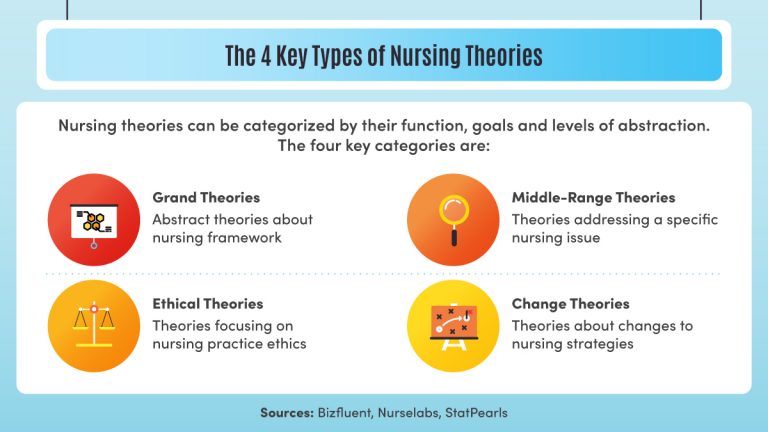How Nursing Theory influence Nursing Practice
Nursing theory is a framework of concepts, beliefs, and principles that guide the practice of nursing. It is developed based on evidence-based research, clinical experiences, and expert opinions. Nursing theory plays a vital role in shaping the approach of nursing practice, as it provides a structure for understanding and addressing the health needs of individuals, families, and communities. In this paper, we will discuss the influence of nursing theory on nursing practice and how it impacts the delivery of quality healthcare.
One of the key ways in which nursing theory impacts nursing practice is by providing a holistic and patient-centered approach to care. Theories such as Maslow’s hierarchy of needs, Orem’s self-care theory, and the health promotion model emphasize the importance of addressing the physical, psychological, social, and spiritual needs of patients. This approach recognizes that individuals are unique and have their own set of needs and preferences, and therefore, nursing care must be tailored to meet these specific needs. By incorporating this holistic perspective, nurses are able to provide comprehensive care that considers all aspects of the patient’s health and well-being.
Furthermore, nursing theories also influence the assessment and diagnosis of patients. The use of different nursing models, such as the nursing process, allows nurses to systematically gather information about the patient’s health status, identify priorities, and develop a plan of care. These models provide a structured framework for organizing patient data and enable nurses to make accurate and timely diagnoses. For instance, a patient who is experiencing difficulty meeting their self-care needs may be assessed using Orem’s self-care deficit theory, which can help nurses identify the root cause of the problem and develop a care plan that focuses on promoting independence and self-care.
In addition, nursing theory helps to guide the implementation of interventions and the evaluation of patient outcomes. Nursing interventions are actions taken by nurses to promote, maintain, and restore the health of patients. These interventions are based on the underlying principles of nursing theories, which provide a rationale for the specific actions taken. For example, the nursing model developed by Dorothea Orem suggests that nurses should assist patients in meeting their self-care needs through education and support, rather than performing all tasks for the patient. This approach empowers patients and promotes their independence, which can lead to improved health outcomes.
Moreover, nursing theory also shapes the development of healthcare policies and guidelines. Theories like the health belief model help to explain how individuals perceive health threats and make health-related decisions. This information is crucial in the development of public health policies and programs. For instance, understanding the factors that influence an individual’s decision to participate in preventive healthcare activities can help policymakers develop effective strategies to promote health and prevent disease.
In conclusion, nursing theory plays a significant role in influencing nursing practice. It provides a framework for understanding the complex nature of health and healthcare, and guides nurses in the delivery of quality care. The holistic and patient-centered approach, systematic assessment and diagnosis, evidence-based interventions, and policy development are just a few ways in which nursing theories impact nursing practice. As nursing theory continues to evolve and expand, it will continue to shape and improve the practice of nursing, ultimately leading to better health outcomes for patients.









